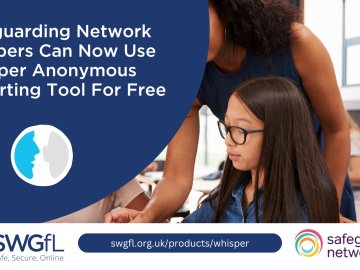If you had asked most teenagers 20 years ago what their favourite possession was, 9 times out of 10 the answer would not have been “my computer”, but in 2017 owning a smartphone is like breathing air to most of them. You cannot possibly even be considered cool unless you own one.
The internet is continuing on its unstoppable path, revolutionising and disrupting every industry it touches, and with the profits that follow, every manufacturer wants connected tech in their product range in a bid to get our pounds this Christmas.
But buyer beware, in the race to market, some companies may have cut some corners when it comes to the security of their products that could lead to you getting more than you bargained for.
Younger Audience
Whilst the smartphone is king in the teenage world, toy manufacturers are betting on smart tech to invigorate their offerings to younger children this year. Products like the Furby-Connect, i-Que Intelligent Robot, Toy-Fi Teddy and CloudPets all offer Bluetooth connectivity and companion apps.
Unfortunately all the toys listed above fail to implement any sort of authentication on their Bluetooth connections, meaning anyone within range can install the companion app on their device, search and connect to the smart toy and start sending your child messages which the toy will blindly play through their built in speakers.
Even after a Which? investigation, the manufacturers that have responded have all stated that they believe their toys to be safe because it would be unlikely that anyone would want to hack the toys, and that they would need technical knowledge to pull the hack off.
The reality of this is that the technical knowledge required is only the ability to connect a smartphone to a Bluetooth device, a common procedure for most smartphone owners.
Smart Speakers
The big tech revolution for this year is the home speaker with integrated smart assistant. Leading the pack is Amazon with its Echo speaker, followed by Google, Microsoft and others. The idea being that you can use your voice to ask the personal assistant to give you information from your schedule or the internet, make lists, appointments, and ask it to play music. It can also control other smart devices such as heating and lights, you can even order products, all with your voice.
But before you see the black Friday deals and take the plunge, consider how the younger members of your family might interact with the device. The security on them will be sound, but beware that your child could be able to access inappropriate content through one of these devices, or order things from the internet without your permission.
Taking Alexa as an example, the digital assistant doesn’t have much in the way of parental controls, this is highlighted by the fact that if you have an Amazon device such as a Fire Tablet with the parental controls enabled, this disables Alexa voice control with no override.
There is already much discussion about the impact these devices could have our young minds, from hilarious misinterpretation, to worries about addiction to these devices, or taking the servant master rhetoric into the playground.
Legislation
As with everything in the fast moving tech world, it’s going to take a while for legislation to catch up, for these new markets to mature, for manufacturers to be more aware of how the devices can be misused, and for the longer term impact of these technologies to be studied.
Indeed some countries are already starting to warn and legislate against unsafe devices, only last week the German regulator banned smartwatches aimed at children, describing them as spying devices, after it had earlier banned an internet connected doll called “My Friend Cayla”.
Norway has also filed complaints against the doll and the i-Que Intelligent Robot, along with American consumer groups, and in July the FBI issued a general warning about connected toys where it stated that “Security safeguards for these toys can be overlooked in the rush to market them and to make them easy to use.”.
Let your wallet do the talking
Until UK consumer groups, researchers and government put pressure, guidelines and legislation onto this sector, it is down to us as consumers and parents to show disapproval for products that may be inappropriate, not have mature enough parental settings, or are just downright insecure, by not spending our money on them.
Our advice is to thoroughly research the products you are interested in before you purchase. Here are some questions you could ask to help you assess the safety of a product:
- Is the product appropriate for all members of your family?
- What parental controls does the product have in place?
- Could the product be misused either intentionally or unintentionally?
- What security measures does the product have in place?
- What impact could prolonged use of this product have?
- What do consumer groups and product testers say about the products?
I wish you and your family a happy and safe Christmas, and remember that adding internet connected services to your child’s xmas present will never take away the most magical part of this time of year: the experience of spending time with friends and family and being merry!
For more advice on the safe use of technology this xmas, read the related articles below and visit the UK Safer Internet Centre.






